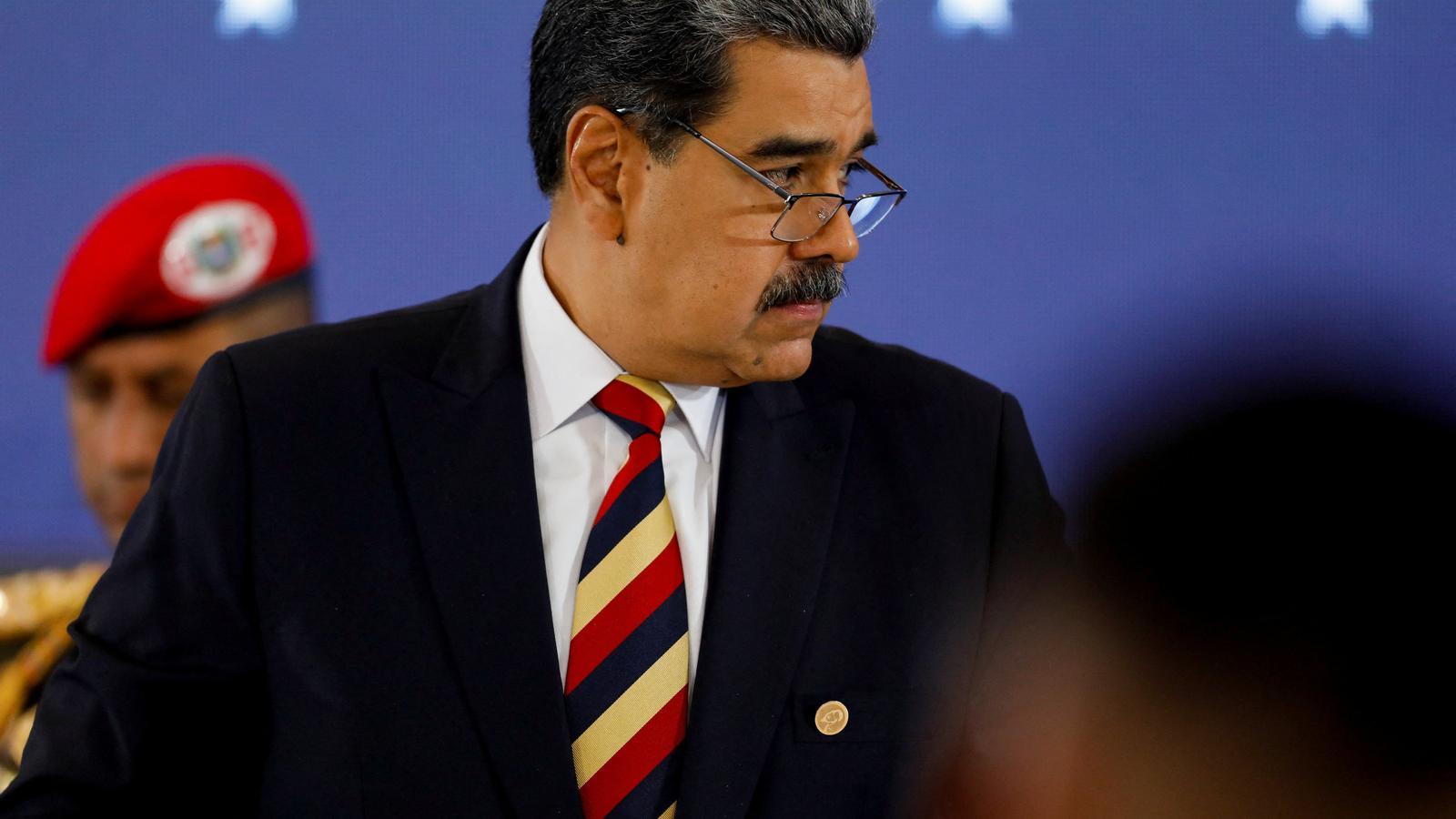Venezuela fears a US military intervention
Trump has avoided explaining what law he is using to attack a Venezuelan ship in "international waters."


WashingtonThe US attack on a vessel leaving Venezuela, allegedly transporting drugs to US territory, represents an unprecedented escalation with Caracas and raises numerous questions. President Donald Trump has said on social media that the attack on the boat was his order and has asserted that the eleven deceased crew members were identified members of the Venezuelan cartel El Tren de Aragua (TdA). He has not explained which law he invoked to carry out the action, which he himself has specified was carried out in "international waters."
It is in this same area, which borders Venezuelan waters, where Trump has deployed a flotilla with more than 4,000 troops since August. "Earlier this morning, as directed, U.S. military forces conducted a kinetic strike against positively identified El Tren de Aragua narco-terrorists in the Southcom area of responsibility. The TdA is a designated Foreign Terrorist Organization operating under the control of Nicolás Maduro and responsible for acts of sexual violence and terror in the United States and throughout the Western Hemisphere," the president wrote on Truth Social, where he also shared images of the operation against the vessel.
Although Trump accuses Maduro of ties to El Tren de Aragua, in a secret April assessment, U.S. intelligence agencies concluded that the Maduro administration "likely does not have a policy of cooperating with the TdA and is not directing the TdA's movements or operations." The assessment maintained that the Venezuelan regime, while sometimes tolerating the gang's activities inside Venezuela, largely views them as a potential security threat.
The only rule Trump appears to have cited to justify his actions is the executive order he signed on January 20, relabeling a number of cartels, including Venezuela's El Tren de Aragua and Cartel de los Soles, as terrorist groups. In doing so, the president opened the door to future military interventions abroad under the guise of fighting terrorism. Fears of a possible military operation have increased in the last month after it emerged that Trump secretly signed an authorization in July for the Pentagon to carry out military actions against drug trafficking.
The attack comes the day after Venezuelan President Nicolás Maduro warned that if his country was attacked, it would declare itself "in armed struggle and a republic in arms." In August, the US government announced a $50 million reward for Maduro's capture, double the amount previously offered for Osama bin Laden. The Maduro government has yet to comment on the attack.
A gesture to test the limits of the new world order
Secretary of State Marco Rubio reiterated the Trump administration's war-like stance against the cartels and said he would not settle for partial drug seizures by law enforcement. "We will fight the drug cartels that flood American streets and kill Americans," Rubio said. "We destroyed a drug ship leaving Venezuela operated by a designated narco-terrorist organization. […] The days of acting with impunity and shooting out an engine or taking a little bit of drugs from a boat are over." Rubio noted to reporters that the attacked vessel was following a common route out of Venezuela, used to distribute drugs to Europe, Puerto Rico, and the US.
Despite the volatility of the stock, Trump likes to play with high stakes to eventually de-escalate. While some Republican Party hawks see the latest pressure on Venezuela as a way to provoke regime change and end Maduro's 12 years in power, the operation seems more like a new test by Trump to challenge the limits of his power internationally and reinforce his brute force diplomacy. A gesture that, with due respect, was seen with the bombing of Iran's nuclear facilities, in which Trump was on the verge of dragging the country into a regional war.
If it didn't happen with Iran, it's even less likely that Washington will carry out a military intervention in Venezuela, despite fears. Even if Trump were able to shoehorn in that attacking Venezuela to combat drug trafficking is part of the agenda. America first, would be breaking his promise to remove the United States from international conflicts. "I don't think the idea of an invasion is true," noted James Story, the top US diplomat for Venezuela from 2018 to 2023, last week. Story emphasized that Trump generally opposed "military interference in the affairs of other countries." But with Trump, nothing is ever certain.
